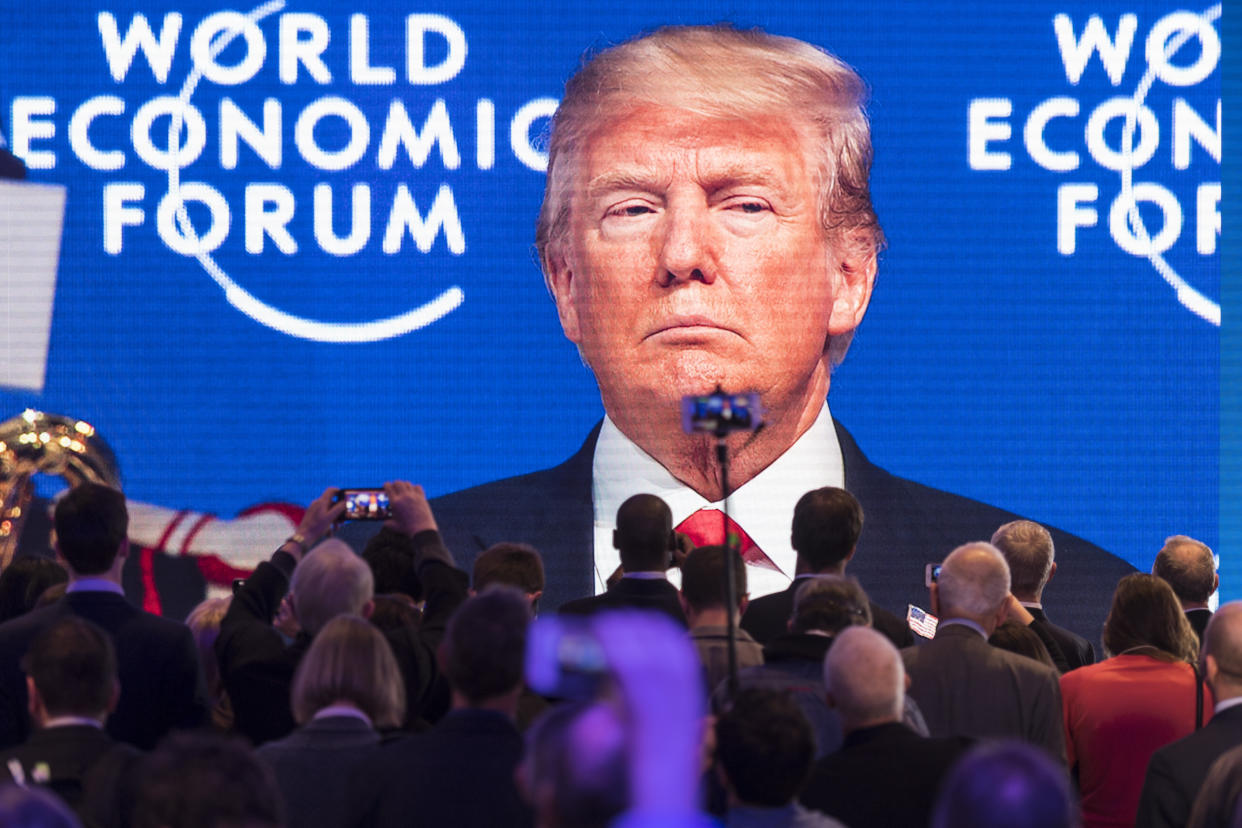Trump's America first should not mean America is alone

David Nelson, CFA, is the Chief Strategist of Belpointe Asset Management
America first is not America alone. That seems to be the latest from Davos and frankly I think that’s what it’s always been. President Donald Trump made that point today in his speech before world leaders at the World Economic Forum in Davos.
You can’t help others without helping yourself first. There’s a good reason why they tell you to put the oxygen mask on your face before your child in an aircraft emergency. You’re not much help to anyone if you’re dead
The United States has opened its hearts and wallets for decades and I think Trump speaks for a lot of Americans who understand that you can’t buy love. There are some so diametrically opposed to our way of life they will never be on our side so why pour good money after bad. That’s what the president is speaking to when he talks about countries that continue to oppose us on the world stage.
Of course, we come first and that’s the way it is in every other country. Anything less from the president would be a violation of his oath of office. That doesn’t mean we don’t work closely with and cooperate with our neighbors.
World trade
That’s what it is like for Emmanuel Macron, Angela Merkel, Theresa May, Xi Jinping and every other world leader whether they care to admit it or not. We’ve done multi-lateral world trade deals for decades and the U.S. has often come out on the short end.
It seems the press is suddenly worried about a trade war with some of our biggest trading partners. The war has been raging for decades but we’ve spent most of the time hiding in the bunker. Trump comes along and says, we’re mad as hell and we’re not going to take it anymore.
China last October went after one of our ally’s, South Korea, because we rolled out the THAAD missile system. Lots of U.S. companies seek access to the Chinese consumer but all too often you have to partner with a local company and hand over your intellectual property not to mention the fact that as a sovereign power China has been stealing our intellectual property for years.
China’s President Xi is trying to position himself as the champion of free trade. There’s no country that’s benefitted more on international trade than China who tries to give the appearance of compliance while at the same time gaming the system.
What about Canada
There’s lots of talk about planes, lumber and automobiles. What about our drug industry?
The Canadian health care system is held up by the liberal media as a shining example of how to keep drug costs lower. Of course it is. What could be more efficient than stealing the drugs or in this case letting local generics get away with reproducing brand new often lifesaving drugs paying little or nothing for the discovery?
Effectively, Americans are subsidizing the drug costs of much of the developed world.
For the last decade Canada has used their promise doctrine to invalidate the patents of some U.S. drugs leaving companies here with little recourse.
It’s not surprising that as we approached the negotiations Canada’s Supreme Court struck down the law so for the first time we have a shot at leveling the playing field. (Read: Trump can lower U.S. drug prices by fixing NAFTA)
Beware of overreaching
The danger is that Trump could go too far with protectionist policies and prevent any chance at reconciliation or a leveling of the playing field. The president throws out a lot of miss direction plays which unfortunately catch even his staff off guard.
I think some of these draconian numbers like 30% or 40% trade tariffs are for shock value and a warning that we’re going to level the playing field. Overall, I think the president doesn’t like multi-lateral trade deals. He believes the U.S. has often ended up on the short side. I think when possible he prefers bilateral trade negotiations believing it increases the odds of a better deal for America.
To date he’s delivered on his most important promise to the American people. He was going to deliver on the economy by putting money back in your wallet and roll back regulations.
Here we are a year later and even some on the other side of the aisle are saying job well done. This week in Davos you had two Wall Street titans: Jamie Dimon, CEO of JP Morgan Chase (JPM)*, and Lloyd Blankfein, CEO of Goldman Sachs (GS), both Democrats, fighting over who was more bullish about the economy. Dimon is talking 4% and Lloyd 3%.
When was the last time you saw that?
*At the time of this article some funds managed by David Nelson were long JPM

